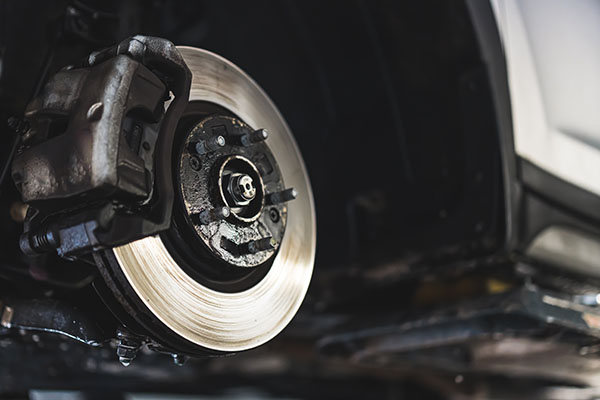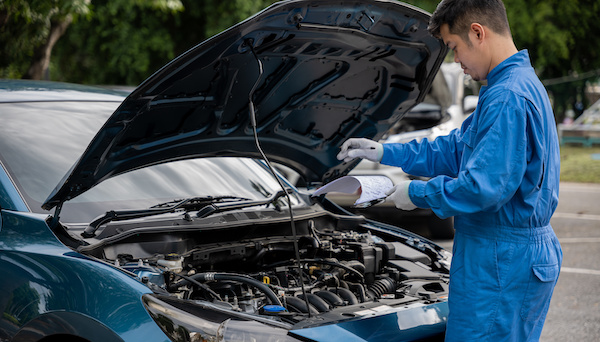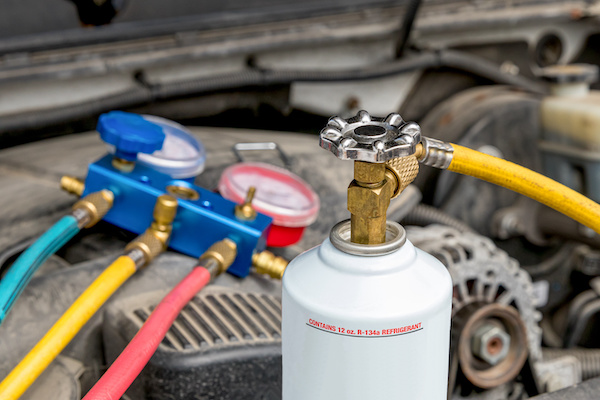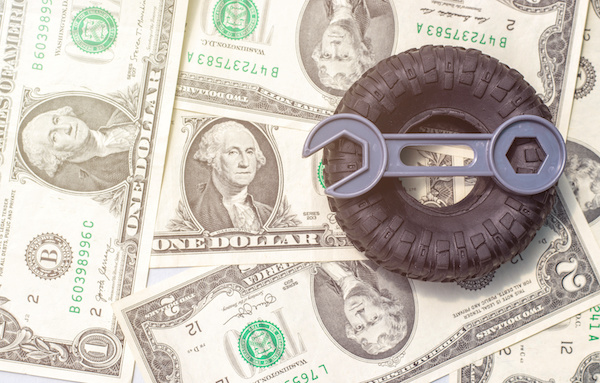Posted on 7/31/2023

Your vehicle's braking system is one of its most critical safety components. Proper maintenance of the braking system ensures optimal performance, responsiveness, and, most importantly, safety on the road. But how can you maintain all of the parts that make it up? Well, continue reading to find out - here is a breakdown of every components service needs: 1. Brake Pads Brake pads are the primary components responsible for creating friction and slowing down your vehicle when you press the brake pedal. Regularly inspect your brake pads for wear. Most brake pads have wear indicators - small metal tabs that produce a squealing noise when the pads need replacement. Replace worn brake pads promptly to prevent damage to other braking components. 2. Brake Rotors (Discs) The brake rotors, or discs, are the flat, shiny surfaces that the brake pads press against to create friction and slow down the vehicle. Inspect the rotors for signs of warping, sc ... read more
Posted on 6/29/2023

Keeping your vehicle in top shape goes beyond regular oil changes and tire rotations. Following the factory-scheduled maintenance intervals recommended by your vehicle's manufacturer is essential for maintaining its performance, reliability, and longevity. Here are 7 ways your car benefits from regular factory scheduled maintenance visits: Enhanced Reliability Of course, the first one on our list is an increase in reliability. Regular maintenance helps identify and address potential issues before they become major problems. By following the factory's scheduled maintenance intervals, you ensure that vital components such as the engine, transmission, brakes, and suspension are inspected and serviced at the recommended intervals. This proactive approach reduces the risk of unexpected breakdowns, providing greater peace of mind and a more reliable driving experience. Extended Vehicle Lifespan Consistent maintenance signi ... read more
Posted on 5/30/2023

Hitting the open road for a road trip can be an exciting adventure, whether done solo or with friends or family, but it's crucial to ensure your vehicle is up for the journey. Before embarking on a long drive, it's vital to have your car, SUV, or truck checked by a professional auto mechanic. Here are some reasons why having your car checked before a road trip is a wise decision: Safety: The most important reason to have your car checked before a road trip is for safety. A thorough inspection can detect any potential issues that could lead to a breakdown or accident on the road. Avoid costly repairs: A pre-trip inspection can identify any underlying issues that, if left unaddressed, could turn into major problems that are costly to repair. By catching these problems early, you can avoid more significant expenses down the road. Better fuel efficiency: A well-maintained vehicle is more fuel-efficient. A tune-up and tire pressure check can make a significant difference in your ... read more
Posted on 4/30/2023

As summer is right around the corner, you need to make sure your car's air conditioning is ready to keep you cool on hot days. The refrigerant is one of the most critical parts of your car's A/C system, and it would simply not feel cool without it. Different types of refrigerants are used in car A/C systems, and you should know which one your vehicle requires. Below is a complete list of auto A/C refrigerants: R-12: R-12 is an old refrigerant that was used in car A/C systems before the 1990s. It's a chlorofluorocarbon (CFC) that has been phased out due to its harmful environmental effects. It's no longer available, and if your car still uses an R-12, you'll need to convert it to a new refrigerant. R-134a: R-134a is today's most common refrigerant used in car A/C systems. It's a hydrofluorocarbon (HFC) that doesn't harm the ozone layer. R-134a is a more efficient refrigerant than R-12 and is also less expensive. If you ... read more
Posted on 3/30/2023

Maintaining your vehicle is essential to keep it running safely and efficiently. Regular maintenance not only prevents breakdowns and repairs but also prolongs the life of your car. However, many people need help determining how much to budget for vehicle maintenance. Here's what you need to know: Estimate Your Annual Mileage The first step in determining your vehicle maintenance budget is to estimate your annual mileage. The more you drive, the more maintenance your vehicle will need. A good rule of thumb is to set aside $0.05 to $0.10 per mile for maintenance costs. Consider Your Vehicle's Age Older vehicles typically require more maintenance than newer ones. The older your car is, the more you should budget for repairs and maintenance. A general guideline is to budget $500 to $1,000 per year for a vehicle that is five years old or older. Account for Regular Maintenance Tasks Routine maintenance tasks like oil changes, tune-ups, and brake inspections should be performed o ... read more